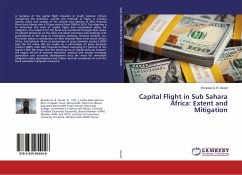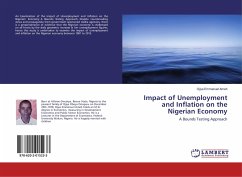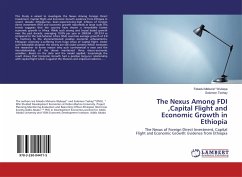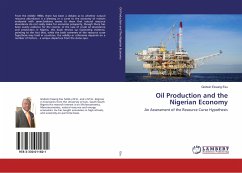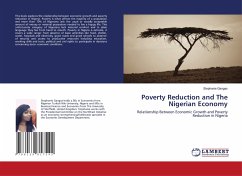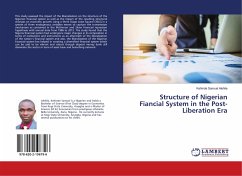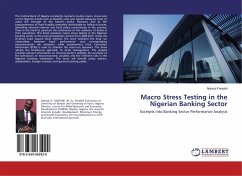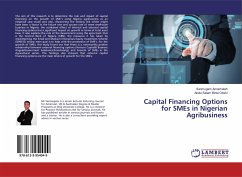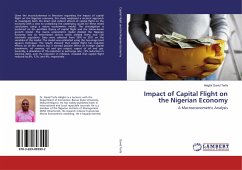
Impact of Capital Flight on the Nigerian Economy
A Macroeconometric Analysis
Versandkostenfrei!
Versandfertig in 6-10 Tagen
49,99 €
inkl. MwSt.

PAYBACK Punkte
25 °P sammeln!
Given the inconclusiveness in literature regarding the impact of capital flight on the Nigerian economy, this study employed a sectoral approach to investigate both the direct and indirect effects of capital flight on the economy with a view to unmasking the underlying causes for these mixed conclusions using a macro econometric model. The investigation is anchored on the portfolio theory of capital flight and the Solow-Swam growth model. The macro econometric model divided the Nigerian economy into six interrelated sectors which yielded thirty two (32) stochastic equations. Data were collecte...
Given the inconclusiveness in literature regarding the impact of capital flight on the Nigerian economy, this study employed a sectoral approach to investigate both the direct and indirect effects of capital flight on the economy with a view to unmasking the underlying causes for these mixed conclusions using a macro econometric model. The investigation is anchored on the portfolio theory of capital flight and the Solow-Swam growth model. The macro econometric model divided the Nigerian economy into six interrelated sectors which yielded thirty two (32) stochastic equations. Data were collected from 1970 to 2011 on the variables of the model. The model was estimated using the two-stage least squares technique. The results showed that capital flight has negative effects on all the sectors but it exerted positive effect on foreign capital investment, oil revenue, oil and gas output, export of oil and gas. Secondly, a simulation of 5% reduction in exchange rate, 15% reduction in external debt, and 1% reduction in inflation, revealed that capital flight reduced by 8%, 12%, and 4%, respectively.



